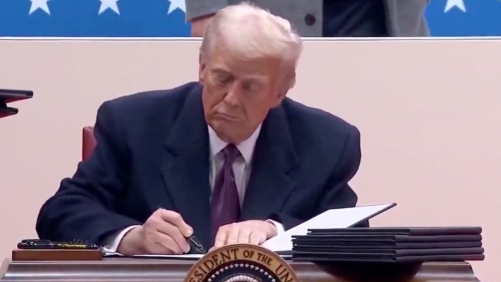Do you know why President Trump withdrew the U.S. from the WHO?
TDT | Manama
Email : editor@newsofbahrain.com
President Donald Trump signed an executive order formally withdrawing the United States from the World Health Organization (WHO). Trump criticized the global health body, accusing it of "ripping off" the U.S., which is the WHO's largest financial contributor.
The decision revives a contentious issue from Trump’s previous presidency, during which he first attempted to sever ties with the WHO in 2020. That withdrawal required a year’s notice and was ultimately reversed when President Joe Biden took office six months later. This time, however, Trump appears determined to follow through, with the process expected to take effect by 2026 unless overturned by Congress—a scenario deemed unlikely given the current political climate.
The U.S. has historically played a significant role in supporting the WHO’s efforts, including collaborations with agencies like the Centers for Disease Control and Prevention (CDC) and the National Institutes of Health (NIH) on initiatives such as cancer prevention, global health security, and disease outbreak monitoring.
Lawrence Gostin, a professor of global health law at George Washington University and Director of the WHO Collaborating Center on Public Health Law & Human Rights, expressed grave concerns about the decision. “This impacts critical efforts like HIV/AIDS prevention, polio eradication, and responding to global health emergencies,” Gostin told ABC News. “In my mind, this is shooting yourself in the foot and making America decidedly less safe and less secure.”
Trump’s withdrawal, though not yet finalized, signals a likely disengagement from the organization as he pursues his broader policy objectives. While some support his stance, citing inefficiencies within the WHO, critics argue that the move jeopardizes both global health initiatives and America’s leadership on the world stage.
As the process unfolds, the ramifications of this decision will likely spark intense debate, both domestically and internationally, about the role of the U.S. in global health governance.
Related Posts

